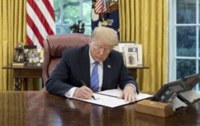If ever small hope existed that a generation of South African reporters, raised on despair and bias as we slept, would one day afford themselves redemption, or just the prospect of, then Bongani Bingwa from Carte Blanche defenestrated that on Tuesday when he questioned whether the election of America’s 47th President had turned American democracy into a “mirage”.
He knows he should not ask such a stupid question. He asks it because his international colleagues ask it, and they ask it because they were instructed to by their sinister bosses, or even by some of the people present at Monday’s inauguration ceremony in Washington.
But whereas Bongani was being cheap and daft, the previous day News25 or News23’s editor protested Meta’s sacking of its crooked and troubled “fact checkers” by declaring that News25 or News23 would hire those people. That of course would be excellent, because it would essentially double the volume of misinformation leaking from that outhouse, then double the amount of sorry-not-sorry reviews in-house “ombudsman” George Claassen will have to publish.
Maybe it would have just been wiser to have cautioned anything Mark Zuckerberg has ever said, like we did, and always will.
Redemption
In 2020 redemption beckoned. Then, prestige reporters from English-speaking nations had the opportunity to be especially curious and not dismiss legitimate critics of Dr Tedros or Anthony Fauci and their respective, wayward institutions. But they didn’t do that, and then they did worse. Academia and the creative industries had been fiddling with the theory of cancelation in the previous decade; in 2020, reporters thought it an opportune moment to import that concept to destroy other broadcasters, writers – even cartoonists.
The day they consciously chose to side with the censors is the day they ruined themselves forever – look no further than the career dives of Twitter’s former moderators on its trust and safety directorate, people whose lives are limited to vocal fry on stage at conferences organised by dark-money NGOs.
The history of censorship is interesting because it is so inexact, and the reason we’ve never been able to determine just who should possess that power is because nobody and nothing should. Thus, it stands as one of the great evils the world has occasioned upon itself: when people believe they hold the power to suppress expression, things become fluid and uncontrollable – one minute someone is sacked for holding views not aligned to the approved narrative, the next they are denied banking services, or having their children’s prospective school reject their application. It mutates on its own. That is its form.
Free speech
On Monday, the 47th President of the United States, already a great man of history, announced an executive order to restore free speech. Such a declaration would have been otherworldly in 2009, but its necessity is justified alone by the response the order has received from Western “liberals” addicted to censorship. In this way, Trump appears unfashionable to the narrative but critical to the reasonable and logical, like the mother of a boy lining up to sleep with a thot trying to break a world sex record, yanking him by the collar and dragging him from the queue.
In contrast Phillip de Wet, News25 or News23’s foreign editor, a man who, despite living in Kent, I strongly suspect of being contaminated by the extremities of North London politics, suggests some sort of information firewall to protect Africa in the wake of Meta’s policy shift. His views are consistent with the sentiments of the European Union, and the governments of the UK and Germany – both of whom are suffering the kind political decline that can be traced directly to their obsession to marshal preferred views, or banish – with consequences – those they disagree with. All manner of modern uncertainty and atrocity exist in this model.
Ceasefire
On Saturday, the eve of the Israel/Palestine ceasefire, a group of pro-Palestine supporters – the majority of whom were white, male, and between the ages of 40 and 60 – gathered in Whitehall, London. But in the most unlikely spectacle the filth intervened and a number of these men were detained for questioning.
Among them were high-profile politicians, activists, and writers. Many had a documented history of championing the censoring of opposing views. When they were released 24 hours later, they emerged from interrogation rooms with looks of bewilderment capturing their shock at having been interviewed under caution. They thought – with good reason – their views were right-on and thus immune; now they were reduced to staring into the black heart of the chaos and tragedy.
Not that they’ll ever thank him, but Trump’s order on Monday protects people like this and the views they possess, however objectionable or pathetic. And that is exactly the way it should be.
[Image: https://www.flickr.com/photos/whitehouse45/50057959663/in/photostream/]
This article first appeared on the Daily Friend.


